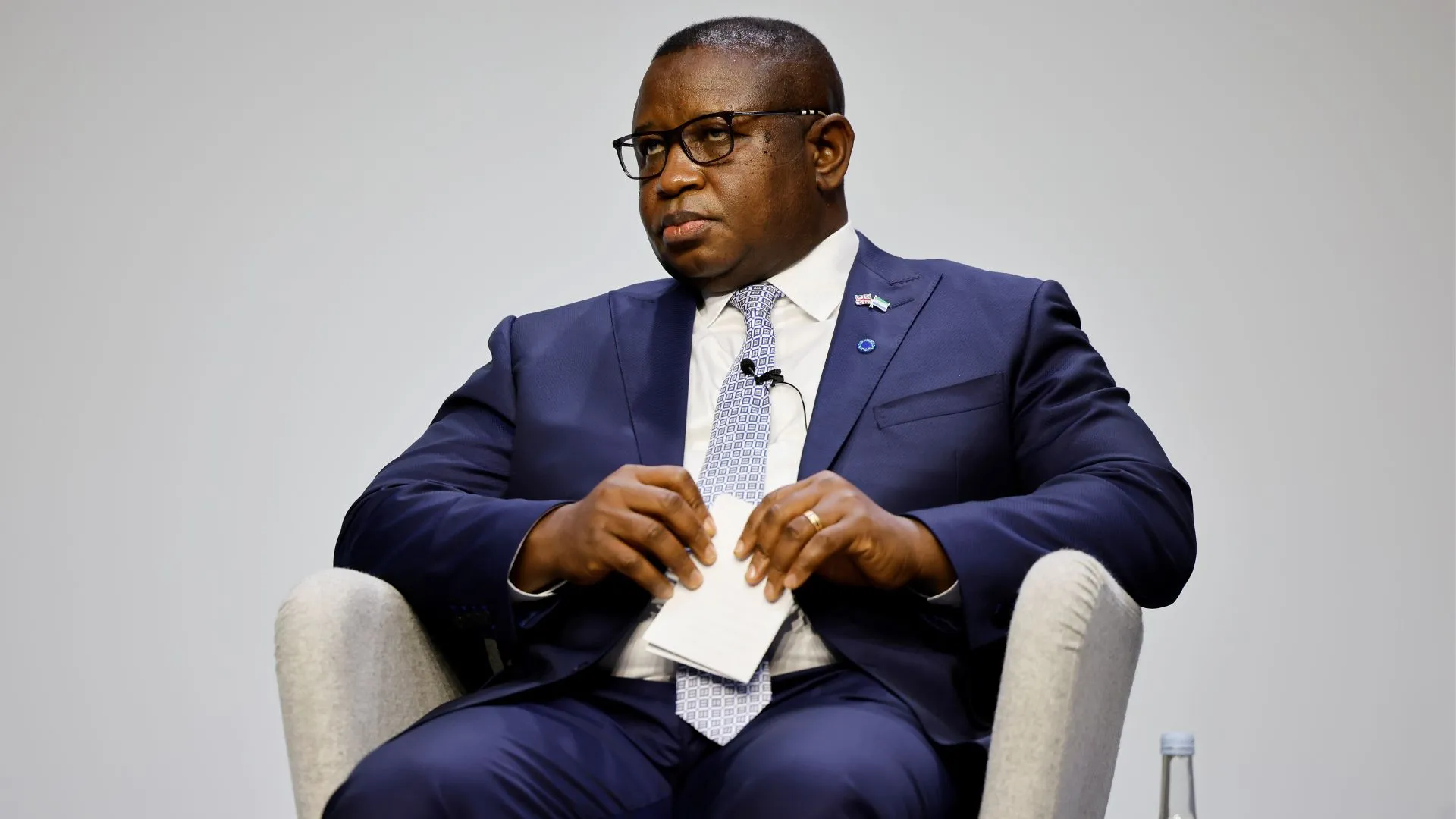Sierra Leone President: US Mounted Pressure On Me To Interfere In Election
President Julius Maada Bio of Sierra Leone has accused the United States of pressuring him to influence the outcome of his country’s June 24 election. Bio made the shocking revelation on Friday, as a statement to be in stark contrast to the concerns Washington has brought up regarding the fairness of the poll. The president […]

Sierra Leone’s President Julius Maada Bio
President Julius Maada Bio of Sierra Leone has accused the United States of pressuring him to influence the outcome of his country’s June 24 election.
Bio made the shocking revelation on Friday, as a statement to be in stark contrast to the concerns Washington has brought up regarding the fairness of the poll.
The president disclosed this during a speaking event at an American University, in Washington, USA, saying, “When the elections were at the height — of calling the results — this is when the problems started.”
He said the Election Commission of Sierra Leone (ECSL), “had done all their calculations, collations, all the processes.
Why is France so obsessed with controlling Muslim women’s bodies?
France deploying forces, war equipment in preparation to invade Niger – Junta
“I was now requested to stop them from calling the result by the United States. So I don’t know who is accusing who of interference.”
“They are an independent, semiautonomous body,” the president said of the ECSL. “I declined, and I said I have never called this institution, I am not going to call them now.”
The 59-year-old Bio was re-elected in a controversial election criticised by both the opposition and international observers.
In a joint statement following the election, delegations from the US, European Union, France, Ireland and Germany said they shared the concerns of national and international observers “about the lack of transparency in the tabulation process.”
In the build-up to the election, some thought the country’s rising inflation and dire economic crises would give the opposition an upper hand, but Bio won with 56.17 per cent of the ballot, just above the 55 per cent needed to avoid a runoff.
On August 31, the US State Department announced visa restrictions on those “believed to be responsible for, or complicit in, undermining democracy in Sierra Leone,” including through vote rigging or intimidation of election observers.
The names of those targeted were not made public, and visa decisions are confidential under US law.
“Elections are always contentious issues, no matter where they happen in the world, including the United States,” Bio said during the event at his alma mater.
It was the school where he earned his Bachelor’s and Master’s degrees following his move to the United States, after handing over power from the military junta he briefly led to a democratically elected government in the 1990s.
When “the United States casts doubt on the credibility (of the election), you are calling for a coup,” Bio said.
“The same representatives of the United States have told us that in any case, they just wanted a second round. In any case, I was going to win, because all the polls have made that clear.”
Sierra Leonean Information Minister Chernor Bah told AFP that “I cannot speak to the US motivation” behind allegedly asking Bio to interfere in the ECSL’s announcement. You’ll have to ask the US that.”
Sierra Leone still has a “great relationship” with Washington and looks forward to maintaining it, Bio said.
